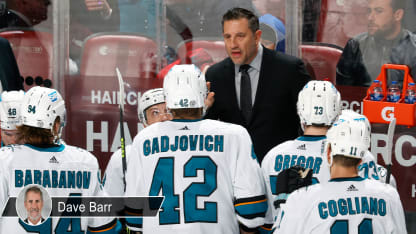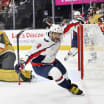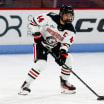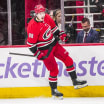The Coaches Room is a regular feature throughout the 2021-22 NHL season by former NHL coaches and assistants who will turn their critical gaze to the game and explain it through the lens of a teacher. Rocky Thompson and Dave Barr will take turns providing insight.
In this edition, Dave Barr, former assistant with the Colorado Avalanche, Minnesota Wild, New Jersey Devils, Buffalo Sabres and San Jose Sharks, breaks down benefits and challenges for four teams in the Stanley Cup Playoff race with a long break in their respective schedules.
Four playoff contenders could benefit from extra rest
Sharks, Rangers, Kings, Panthers each have long layoff to heal physically, mentally

By
Dave Barr
Special to NHL.com
There are benefits and challenges to what's ahead for four teams in the Stanley Cup Playoff race.
The San Jose Sharks won't play another game until Feb. 14. The New York Rangers and Los Angeles Kings won't play until Feb. 15. The Florida Panthers are off until Feb. 16.
It'll end up being 12 days between games for the Sharks and Kings, 13 for the Rangers and 14 for the Panthers.
It's crazy, but they all could reap some benefits from the break in multiple ways.
For starters, the schedule so far has been condensed and travel is always an issue, especially for the Sharks and Kings, and somewhat for the Panthers. They're traveling time zones and playing three games in four nights once a week or every second week.
Physically and mentally, you can wear down, so it's a benefit to let the body heal, let the body and the mind rest.
The strain is as much on the coaches. In fact, it's probably more mentally stressful for them than the players.
You think of a coach like Rangers assistant Mike Kelly, who runs the power play, works with the forwards and sometimes coaches three games in four nights.
When that happens, he must show what the penalty killers are going to do Tuesday against whoever they're playing. Then on Wednesday, he's got a new penalty kill crew that the Rangers are opposing, so they're going to review the video from what they did the night before and from the last time they played the team they're facing.
Then they get a day off, so do they show them more video or back off? Then the fourth night is another new opponent and you're going through it all over again.
You're trying to be fresh and interesting, and it is very demanding on the coaches. They're going at it for hours. They're in there two or three hours before the players and at least two or three hours after the players preparing for the next game or that night.
It's a great break for the coaches.
When they come back, they're going to be organized and will have some players who are fresh and excited and energized to be there, to be back with their buddies and get back to the camaraderie they've built the past four months.
The coaches should already know what they're going to do, too.
The Rangers, for example, probably already know when they get back Feb. 11 exactly what they're going to do on the 11th, 12th, 13th and 14th. They already have a general plan in place.
Coaches lose control when their players scatter for a week to 10 days, but that's where you have to go back to the trust you have in them to do the right thing, to make sure they're taking care of their bodies, exercising wherever they are, making sure they stay in shape.
There's a reason why these guys are playing in the NHL, because they're professionals and they know how to handle themselves. They know what works for them and what doesn't.
Another huge benefit is the practice time they'll get on the back end of the break.
A lot of times when you're in that part of the busy schedule, you're talking about systems and just doing the work through video, not drills on the ice. With these practices they'll be able to do it.
It's hard through the season because you have to manage so much energy. Now you're trying to ramp it back up so you want the energy, and you can do those forecheck drills and be physical in practice, be more aggressive instead of having just a run through at half speed.
A concern, of course, is that you're not playing and that takes you out of your routine. The coaches will try to avoid that being a negative by simulating game conditions in practice.
It could be a 5-on-5, two lines against the other two lines, and you take 30-second breaks in between each shift. But you're trying to simulate plays, so the players are playing at game speed, yes against their teammates, but playing relatively hard, with pace, bumping each other. They need to do that so they're ready for the first game back.
So much of it is who are you playing that first game back? Has that team been playing? Are they more game ready? That's a big part of it when you haven't played in 10-15 days. You have to make sure you're preparing your players to be ready for that NHL pace, especially when you're moving into the playoff race when teams are ramping it up.
I think in the long run, the Panthers, Rangers, Kings and Sharks could benefit from this in a big way. It'll be tough the first few games and they'll be at a disadvantage, but long term they might have a little bit of a benefit because they got the rest and that could mean one or two fewer injuries because it's not as much wear and tear on a consistent basis.
















